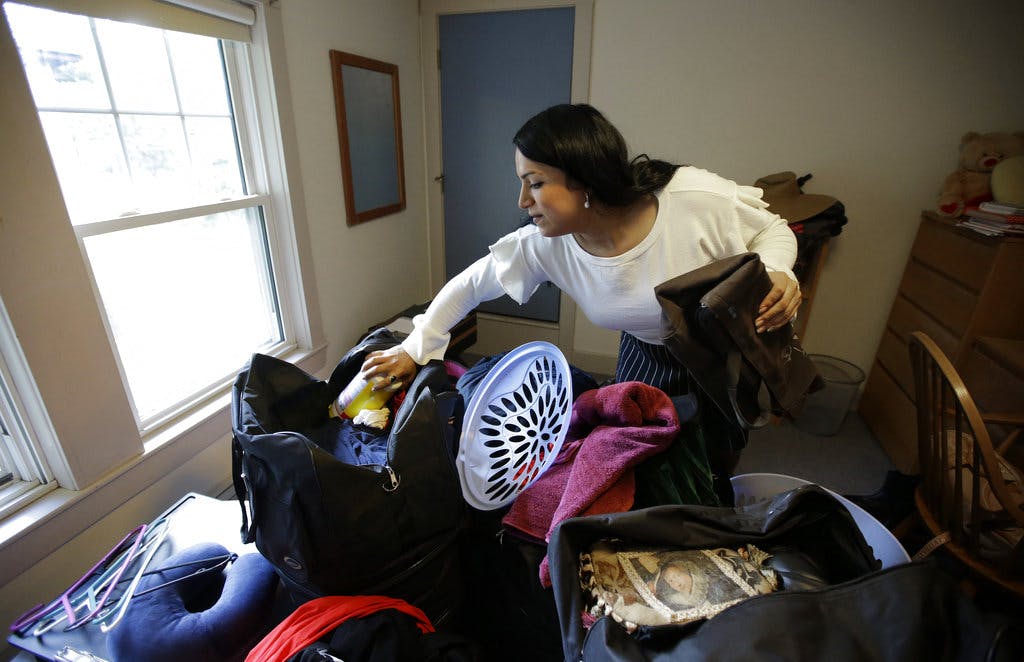Wellesley College Gender Inclusivity Resolution Sparks Debate Over Women’s Colleges
Despite the student body voting in support of a resolution to open admissions to all nonbinary applicants, the administration said it will not change its current policy.

A vote by students at Wellesley College in favor of a nonbinding referendum to open admission to all nonbinary and transgender applicants — including trans men — is sparking new debate about the role of women’s colleges at a time when elite campuses are aggressively embracing “gender inclusivity.”
Although the administration said Wellesley’s policy would not be changed, the resolution’s passage demonstrates the student body’s support for greater gender inclusivity — even at a prestigious college whose identity has long been tied to its being exclusively for women.
This change — if ever enacted — would mean that the college would allow applications from trans men in addition to trans women, who are currently admitted. Some trans men, who had transitioned while at Wellesley, have expressed the idea that they felt unwelcome there.
At the center of the issue is a disagreement over the purpose of women’s colleges, with proponents of the resolution arguing that such institutions should support all who face gender-based discrimination.
Opponents of the resolution, such as the administration, contend that the school’s purpose is to provide a space for those who “live consistently as women.”
“In accordance with our admission policy, Wellesley admits applicants who identify and live consistently as women, regardless of the gender they were assigned at birth,” Wellesley College’s president, Paula Johnson, wrote in a statement.
Ms. Johnson went on to cite recent restrictions on reproductive freedom in the United States and “attacks on women’s rights and education across the globe” as evidence that the school’s original “mission is as urgent as ever.”
“We are not a ‘historically women’s college,’ a term that only applies to women’s colleges that have made the decision to enroll men,” Ms. Johnson said. “We have chosen a different path, one that aligns with peer institutions including Barnard, Smith, and Bryn Mawr colleges.”
The student body at Wellesley firmly supported the resolution, taking a position that puts it in opposition to the college’s administration.
Ahead of the passage of the resolution, the student-run Wellesley News published an editorial stating that “transgender and nonbinary students have always belonged and will continue to belong at Wellesley, a historically women’s college.”
“The need for newspapers to take stances on their editorial standards is more important than ever, as demonstrated by the harm caused by The New York Times’ anti-trans pivot,” the editorial board wrote, referring to recent accusations by transgender activists that the Times’s reporting on the subject was biased.
Before the vote, the Wellesley College government senate also voted unanimously to approve the gender inclusivity ballot question.
One student “senator,” Allie Wood, told the Wellesley News that the measure passed because the college was founded as a place to “create a safe and supportive learning environment for people who were marginalized based on gender.”
“Such a place should welcome and support trans women, trans men and nonbinary people as well,” Ms. Wood said. “Past, present, and future trans and nonbinary students at Wellesley should feel like the College has their back.”
Despite all this, the Wellesley administration said that the “results of the vote … will not impact any of the policies or practices of the College.”
Other members of the group of elite women’s colleges, the so-called Seven Sisters, such as Sarah Lawrence and Vassar, became co-ed years ago. Ms. Johnson, however, said that Wellesley remained committed to being a women-only school.
The ballot initiative did appear to win some concessions from the administration, including a commitment to support the school’s “trans students in ways that are meaningful to them.”
This will include a new hire at the Office of LGBTQ+ Programs and Services on campus who will serve as an advisor on the issue and expansion of resources to help students find gender and sexual orientation affirming care.
The school also promised to help clarify their policy for potential applicants on the school’s website, making it clear that “every student who is admitted to Wellesley belongs here” regardless of how their gender identity evolves while at the school.
The disagreement between the student body and the school has sparked national interest concerning the admission of nonbinary students to women’s colleges.
The administration’s response was not what most of the student body was hoping for, according to the college government president, Alexandra Brooks.
“There are definitely some members on the board that think this is an issue that maybe just a few strong student advocates care about as opposed to something that a lot of the student body cares about,” Ms. Brooks told the Wellesley News.
She added that “the goal of this ballot initiative is to show the Board of Trustees and the College administration that this isn’t just something that a few people care about.”

